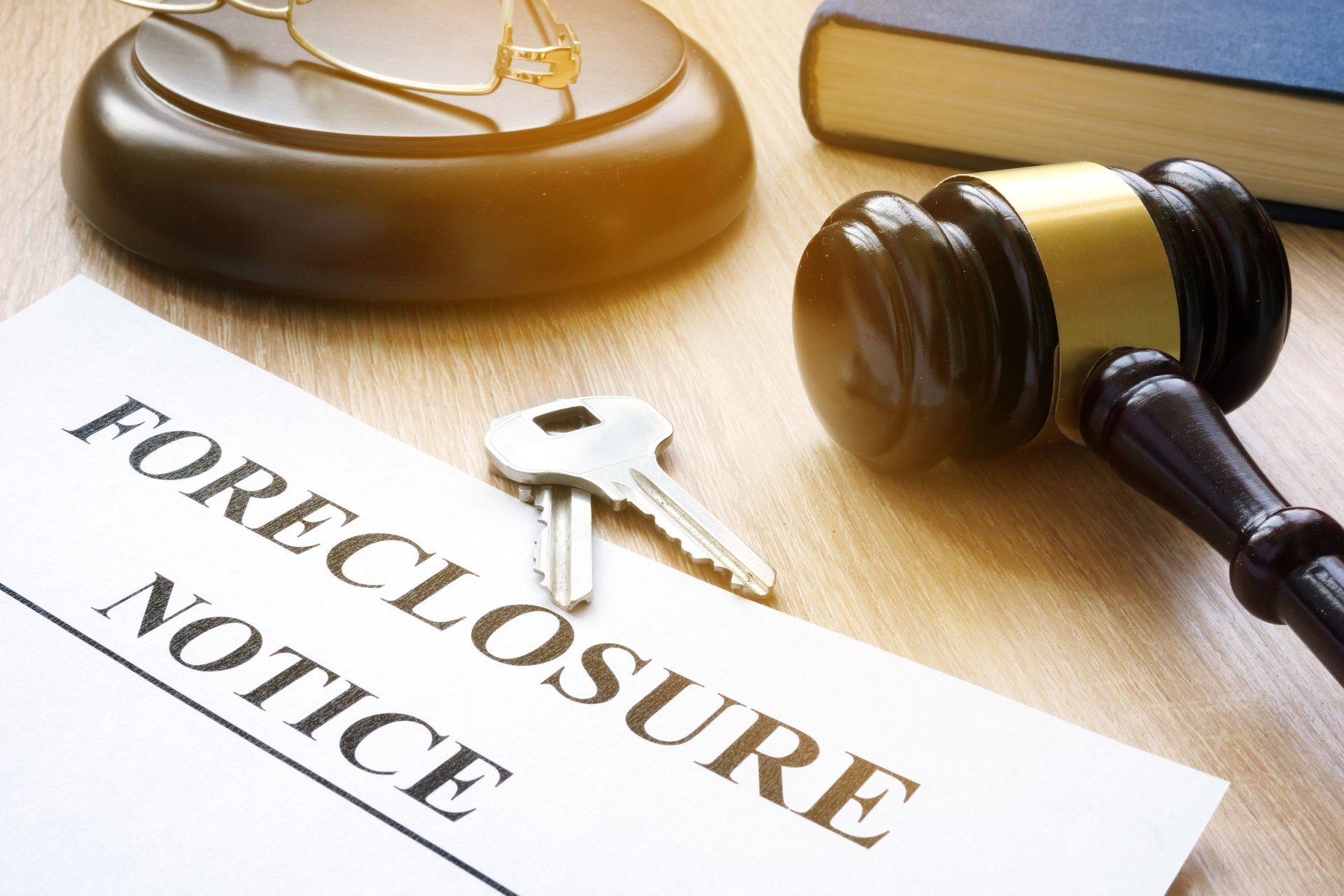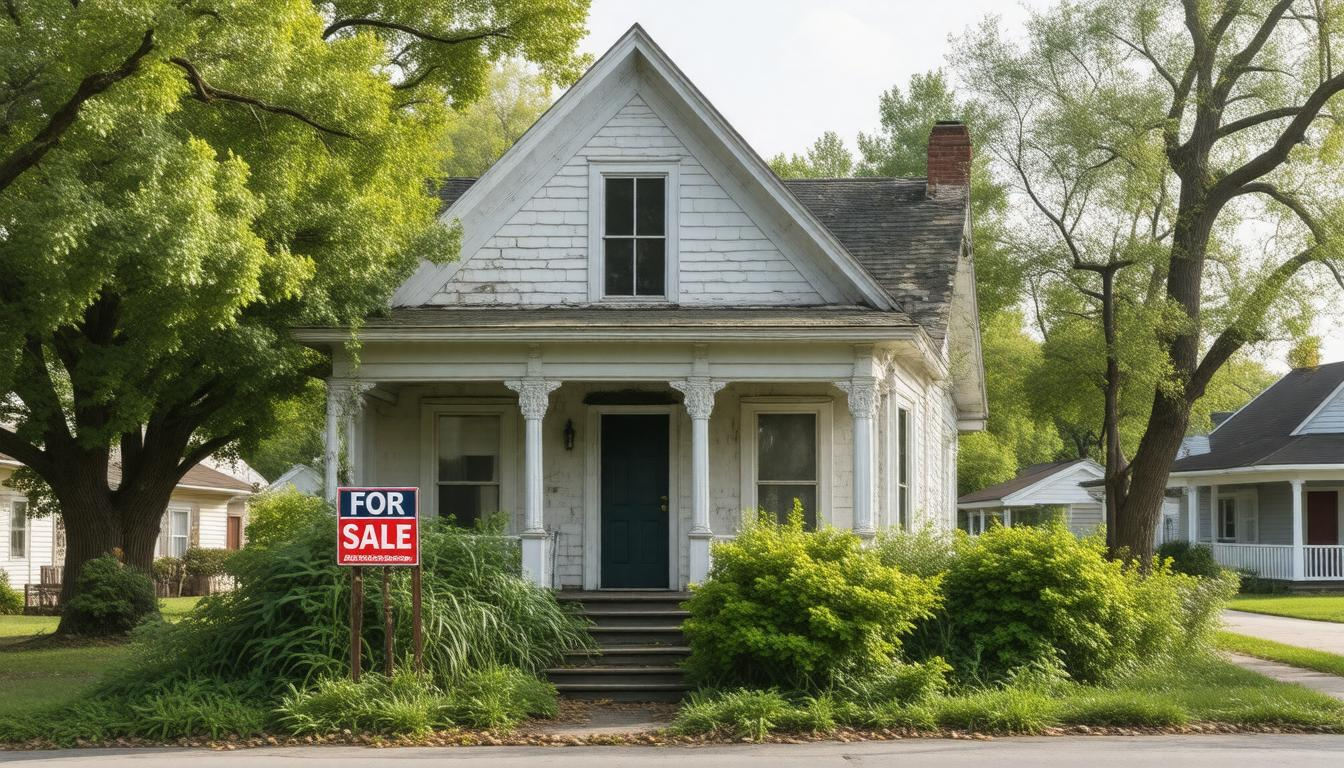Impact of Foreclosure on Credit & How to Recover
Impact of Foreclosure on Credit & How to Recover

Impact of Foreclosure on Credit & How to Recover- Facing foreclosure can feel like a financial storm, leaving your credit score in shambles and your borrowing power severely restricted. It's a tough reality, as a foreclosure can plummet your credit score by 100 points or more, depending on where you started. This drop isn't just a number—it's a barrier to refinancing loans and securing favorable insurance terms.
However, all is not lost. The impact of foreclosure on your credit doesn't last forever, and there are ways to rebuild and recover. By understanding the consequences and taking proactive steps, you can gradually restore your financial health. Paying bills on time, disputing inaccuracies in your credit report, and using credit responsibly are key strategies to bounce back. Remember, recovery is a journey, but with determination and the right approach, you can regain control of your financial future.
Understanding Foreclosure and Credit
A foreclosure can severely damage a credit score. In many cases, the impact reaches a reduction of 100 points or more. A higher score before foreclosure typically experiences a greater drop compared to a lower initial score. This negative entry can remain on a credit report for up to seven years. As it lingers, financial options become limited. For instance, getting favorable terms for loans and insurance might become challenging.
Knowing the difference between a credit score and a credit report helps in managing these challenges. A credit score represents a numerical value depicting creditworthiness, while a credit report showcases detailed credit history. To aid in monitoring, major credit card issuers now provide credit scores on monthly statements, allowing better tracking of financial health. By understanding these distinctions, it becomes possible to strategize recovery effectively.
Disputing inaccuracies in credit reports is crucial since correcting errors can mitigate some negative effects of foreclosure. If an error persists beyond the permissible period or inaccurately records foreclosure, a dispute process is available to rectify this issue. By ensuring all information is correct, a stronger foundation for rebuilding credit can be established.
In some situations, negotiating with a lender before reaching foreclosure might prevent severe impacts. Options like short sales or deeds in lieu of foreclosure might reduce credit score drops significantly, sometimes by 50 to 100 points. Understanding these alternatives can provide a pathway to mitigate damage alongside the understanding of foreclosure's broader impact on credit health.
Impact of Foreclosure on Credit
Foreclosure marks a major financial setback with profound effects on credit. It significantly lowers credit scores and restricts future borrowing options.
How Foreclosure Affects Credit Reports
A foreclosure becomes a serious delinquency on a credit report, drastically dropping the score by 100 to 160 points. Since payment history constitutes 35% of a credit score, the damage is considerable. Foreclosures are recorded in credit reports by the three major credit reporting agencies and signal increased risk to potential lenders.
Duration of Foreclosure Impact on Credit Score
The impact of foreclosure on a credit score can last up to seven years, with entries stemming from the first missed payment that led to foreclosure. During this period, borrowing can be more challenging. The recovery process involves consistent, responsible credit use and may take three to seven years, depending on the overall credit profile and history.
Other Consequences of Foreclosure
Beyond impacting credit scores, foreclosure limits access to favorable loan terms and insurance policies. It may raise interest rates on existing credit and restrict access to some financial products. Crucially, negotiating solutions like short sales can help manage the extent of the financial damage by lessening the negative implications on credit.
Steps to Recover After Foreclosure
Recovering financially after a foreclosure is challenging but achievable. Following structured steps can help restore credit and financial stability over time.
Establish Good Financial Habits
Forming positive financial habits begins with living within means. I focus on spending less than I earn, which reduces stress and increases savings. Engaging with like-minded individuals who prioritize budgeting and responsible spending supports long-term habit formation.
Rebuild Credit With Secured Cards
Using a secured credit card effectively can aid in rebuilding credit. After providing a security deposit, I make sure my card issuer reports to at least one major credit bureau. Consistent on-time payments and responsible credit usage gradually improve my credit score.
Monitor Credit Reports Regularly
Regularly checking my credit reports helps identify errors and address discrepancies promptly. I make it a habit to review my reports from all three major credit bureaus, ensuring my credit history accurately reflects my financial activities.
Seek Professional Help if Necessary
If I encounter difficulties recovering from foreclosure, seeking help from professionals is beneficial. Housing counselors and credit advisors offer personalized guidance on debt management, budgeting, and rebuilding credit, providing me with tailored strategies for my journey to financial wellness.
Looking Ahead: Buying a Home After Foreclosure
Rebuilding my financial life after foreclosure sets the stage for owning a home again. Essential steps include understanding the timeline for reapplying for a mortgage and implementing strategies to enhance my creditworthiness.
Timeline for Reapplying for a Mortgage
Post-foreclosure, mortgage eligibility typically necessitates waiting for certain periods. Conventional loans often require a wait of seven years, while loans backed by government agencies—like FHA and VA—might be accessible after three years. It's crucial to ensure my financial situation remains stable during this time, which involves maintaining a current credit score above 620 to demonstrate a low risk of defaulting again.
Strategies for Improving Creditworthiness
To recover and improve my creditworthiness, several strategies come into play. Lowering my credit utilization ratio to below 30% of my available credit demonstrates financial discipline. I consistently pay bills on time, keeping my payment history positive and reflecting responsibility. By avoiding new credit applications, I prevent unnecessary hard inquiries that could briefly decrease my credit score. I also utilize professional guidance, such as credit counseling, to manage my budget effectively and address any debt-related concerns. Monitoring my credit reports ensures I catch any inaccuracies promptly, a necessary step in safeguarding my improved credit status.
Conclusion
Facing foreclosure is undoubtedly challenging but it's not the end of the road. By understanding its impact on credit and taking strategic steps to recover, it's possible to rebuild financial stability. It's crucial to adopt good financial habits and utilize resources like secured credit cards and professional advice. Monitoring credit reports regularly helps in addressing any inaccuracies promptly. Furthermore, preparing for future homeownership by maintaining a stable financial situation and improving creditworthiness is essential. With determination and the right strategies, reclaiming control over one's financial future is entirely achievable.
Get Help Now – Call (601) 803-7241 to talk with Atlas Property Investors about preventing foreclosure!











